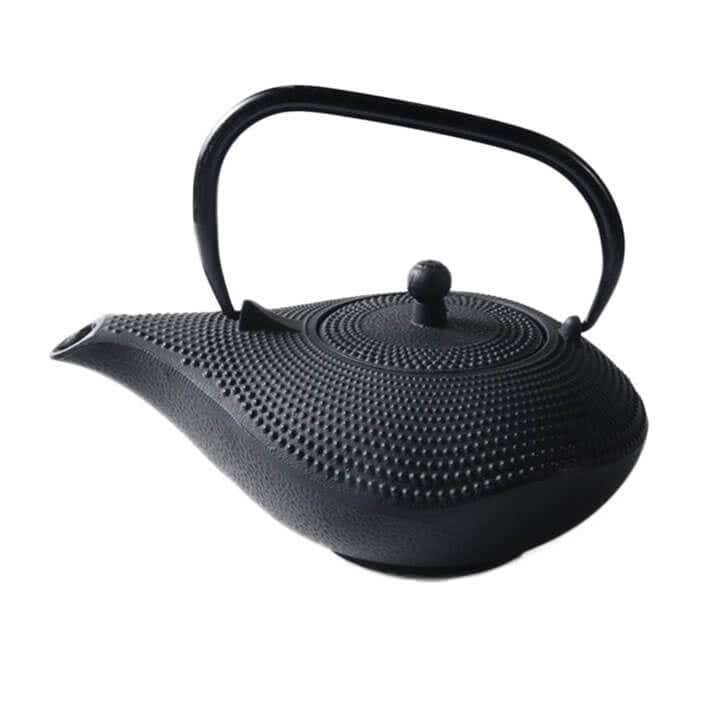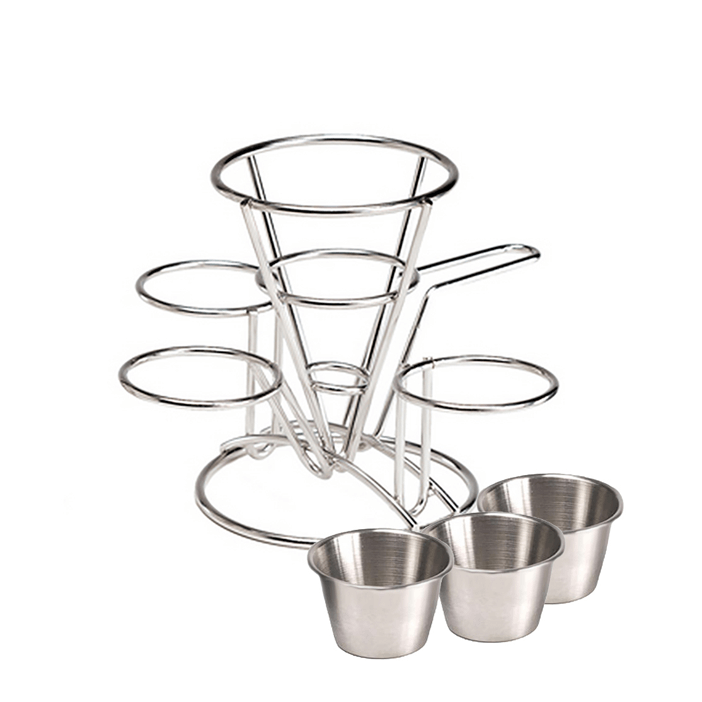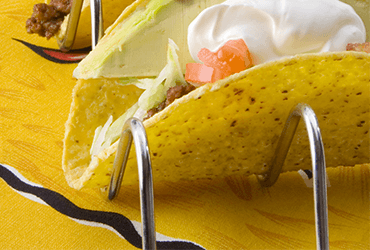Recycling Metals Drastically Benefits our Environment
The metal industry supports jobs nationwide, but it doesn’t necessarily support the environment. However, there are many different steps we can collectively take to help alleviate the metal industry’s carbon footprint. For instance, if we choose to use metal products, then we can make sure to recycle when it comes time to dispose them, instead of throwing them away to stay in a landfill for years. We know that the restaurant industry uses many different metals, so we can make a huge impact. Recycling metal is a vital step in creating a more sustainable future for our metal industry, and for food establishments.
Although recycling metal has many economic benefits such as increased job creation, the environment is our main focus when recycling metal. We have too much metal clogging up our landfills that can easily be recycled, reformed, and reused. The metal sitting in landfills not only hurts those centers, but it also damages ecosystems. Chemicals can be released into the earth from metals sitting around in landfills, and this toxic waste is a huge issue. All of our metal collection can be recycled, even if it’s designed as reusable. Once you’re done with our metal product, whether it’s tomorrow or three years from now, you can easily recycle it to lengthen its life cycle and reduce its impact on our environment.
At Restaurantware, we aim to provide the eco-friendliest, and most fashionable, tableware available. Thus, we want to make sure the life cycle of our products remain green. Our metal collection already reduces waste because most of it is reusable; however, it is important that they don’t end up creating unnecessary environmental problems by being thrown away in regular trash for them to end up in landfills. Many questions surround recycling metal, but we have the answers for you.
Recycling Restaurantware metal reduces your eco-impact
Avoid Wasting Resources
Creating metal products from new resources doesn’t make sense when we can recycle the resources we have already used. Aluminum and steel come from nonrenewable resources, so making these items on demand is not sustainable. Since we have a limited resources to make metal, we need to recycle these products in order to create a more sustainable metal industry. Recycled metals have the same look and durability as metals made directly from the resource, so it only makes sense to recycle metal. At the pace we are using natural resources presently, we are at a risk of running out in future generations. We want to prepare for the lives to come, so we need to collectively strive to recycle as much metal and other material as possible.
Reduce greenhouse gases
Producing new metals creates more greenhouse gas than turning recycled metal into new products. These gases are detrimental to our global atmosphere by depleting our ozone layer, which adds to our ongoing global warming problem. This change in our environments puts many habitats and animals at risk of extinction. Thus, air pollution is a serious issue for our environment, and the metal industry is a prime factor. The creation of new metals not only adds pollutants into our atmosphere, but it also produces chemicals that can be oozed into the ground. These byproducts are hazardous to our health. We can change this by turning our focus towards recycling metal, instead of creating these products from scratch.
Protect Energy Use
Creating new metal also takes more energy than recycling. Many studies support this, including one from the National Institutes of Health that states recycled aluminum takes 95 percent less energy to create versus making it from new resources. These numbers cannot be ignored because they are very drastic. If we turn our aluminum industry to recycled, we can save huge amount of energy. We should strive for a majority of our aluminum to be made from recycled material. The amount of energy we could save will help us create a more sustainable society. Especially if we started using cleaner energy, our impact on the environment could be reduced to minimum. The energy conservation adds up, and can improve our environmental impact monumentally.
Creating new metal also takes more energy than recycling. Many studies support this, including one from the National Institutes of Health that states recycled aluminum takes 95 percent less energy to create versus making it from new resources. These numbers cannot be ignored because they are very drastic. If we turn our aluminum industry to recycled, we can save huge amount of energy. We should strive for a majority of our aluminum to be made from recycled material. The amount of energy we could save will help us create a more sustainable society. Especially if we started using cleaner energy, our impact on the environment could be reduced to minimum. The energy conservation adds up, and can improve our environmental impact monumentally.
The process of recycling metal is more simple than many believe. After collecting the metal, it must be sorted so the centers can properly make specific metal products. Metal can’t be mixed to make new specific recycled material. For instance, recycled aluminum has to stay together without any other metals to be made into more aluminum products. During sorting, the metals are inspected to make sure they are going to the right place. Magnets are used as an easy tool to separate steel from the array. Since these metals need to surely be separated, then we should make an effort to recycle these products in the right place to ensure the process goes smoothly. After sorting, metals are then shredded to simplify the process. Each metal piece is shredded down into smaller pieces. During this step, the metals are tested for radiation and many pieces are stripped of any paint. Doing so ensures that the metal is melted consistently and uniformly, which helps the rest of the process go smoothly. The goal of recycling metal is to get it as close to the new material as possible. After melting, the metal is pressed into cubes to easily transport them to the proper facility.
The last step in metal recycling is preparing them to become new metal products. After they are cooled, the metals are put into a piece of equipment that flattens the material. These sheets are then used as a basis to the new metal products. Recycled metal can make many different new products, including appliances and tableware. The recycling process is an innovative way to make metals friendlier to the environment. At Restaurantware, we encourage all of our customers to make green choices to reduce our collective carbon footprint on the world. We make sure that all of our metal is recyclable when it comes to their disposal. Recycling metal is easier than many think because it is a very common practice. In fact, most metal products are made from recycled materials because it is a more economical and sustainable option. By recycling metal, we waste less resources, avoid as many greenhouse gases, and conserve energy. Thus, it only makes sense to opt for recycling rather than creating metals from scratch to match national demand.











